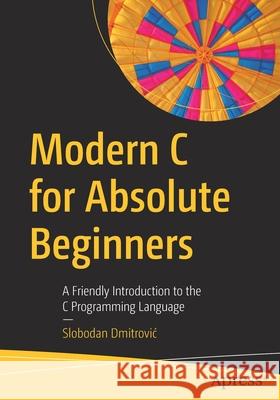Modern C for Absolute Beginners: A Friendly Introduction to the C Programming Language » książka
topmenu
Modern C for Absolute Beginners: A Friendly Introduction to the C Programming Language
ISBN-13: 9781484266427 / Angielski / Miękka / 2021 / 346 str.
Kategorie:
Kategorie BISAC:
Wydawca:
Apress
Język:
Angielski
ISBN-13:
9781484266427
Rok wydania:
2021
Ilość stron:
346
Waga:
0.63 kg
Wymiary:
25.4 x 17.78 x 1.93
Oprawa:
Miękka
Wolumenów:
01
Dodatkowe informacje:
Wydanie ilustrowane











